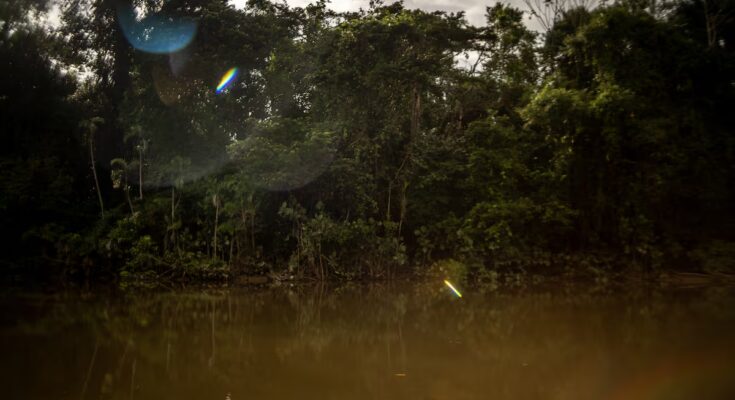Nature is angry. Just ask the Caribbean, where residents are recovering from one of the most powerful hurricanes in their history. This extreme event, like many others, bears the imprints of climate change, caused by the extraction and burning of fossil fuels.
When I became president of Colombia, indigenous leaders told me that I had to make peace, not only with the rebels, but also with nature. They were right and international law is on our side.
In a landmark ruling in July, the International Court of Justice (ICJ) said governments have binding legal obligations to act on climate change. He warned that government support for fossil fuels, whether through licenses, permits or subsidies, could be an “illegal act.” This advice is already having an impact: In August, a Brazilian court ordered the suspension of operations at a coal mine and a power plant, citing the International Court of Justice.
Meanwhile, clean energy is increasingly competitive. Wind and solar grew to provide a third of Brazil’s electricity in August, strengthening resilience alongside hydropower and reducing the need for additional gas-fired plants. Santiago, Chile is on track to have two-thirds of its buses running on electricity by the end of the year. Globally, the direction of travel is clear: Europe decided this week to double down on its green transition, while China has invested its economic might in renewable technologies.
The downside is that coal, oil and gas producers are facing an increasingly uncertain future. As clean energy erodes demand for fossil fuels, the jobs and public revenue associated with the sector will not last forever. Every region that depends on fossil fuel extraction urgently needs a plan to diversify into new sectors, retrain workers and support affected communities.
For Colombia, nature conservation is at the heart of plans to rebalance the economy away from fossil fuel extraction and maintain peace. Where this is implemented correctly, ex-combatants and communities come together to preserve forests and rivers and promote ecotourism. International cooperation and investment are key.
That is why I support Brazil’s initiative, as host of the COP30 climate conference, to develop a roadmap to break dependence on fossil fuels. European and climate-vulnerable nations support the idea, and it is in the interests of both producers and consumers to engage constructively.
By working together, countries can make this transition rapid, fair and orderly. But we cannot wait for unanimity to protect our most precious ecosystems from exploitation. The world’s largest rainforest requires immediate attention.
Reckless extraction – both legal and illegal – combined with climate change is pushing the Amazon towards a dangerous point of no return. Beyond the tipping point, there is a risk of accelerating forest loss and even collapsing the entire biome.
Part of the problem is fossil fuels. Over the past 15 years, oil and gas extraction in four Amazonian countries has been linked to 5,000 environmental incidents. These have polluted rivers and soils, at an unacceptable cost to wildlife and people’s health. Large areas are further threatened by oil and gas expansion, as well as illegal mining.
Indigenous people have made calls to stop the drilling. After a year-long investigation, members of the global network Parliamentarians for a Fossil-Free Future have set out an action plan to protect the Amazon. It calls for ending new oil and gas exploration, strengthening indigenous governance and creating financial tools to keep fossil fuels in the ground.
The International Union for Conservation of Nature has committed to a fossil-free Amazon. When leaders meet at the gateway to the Amazon in Belem this month, we urge them to join this effort. What better offer of peace to our natural world?
Sign up to our weekly newsletter to get more English-language news coverage from EL PAÍS USA Edition



